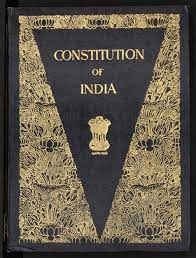
.png) Dr Suresh Mathew
Dr Suresh Mathew

‘Serving people is my priority,’ said D. Y. Chandrachud on his very first working day at the Supreme Court after taking over as the Chief Justice of India. These were the words ‘We the people’ were waiting for long to listen.
Coincidentally, it came a few days before the country marked 72nd Constitution Day on November 26 to commemorate the adoption of the Constitution of India. The Constitution is the heart of the nation whose soul is democracy which stands on the four pillars of legislature, executive, judiciary and media. When efforts are on to subvert constitutional values and trample upon democratic institutions, ‘We the people’ who constitute the country as a Sovereign Socialist Secular Democratic Republic are left bewildered, unaware of where to turn to for succour and relief.
It is the Constitution that enables and ensures a meaningful life for its citizens. Without the provisions enshrined in it, and their observance, civilized life becomes impossible. However, the country is in the throes of a crisis wherein constitutional provisions are subverted, with the guardians and protectors remaining helpless ‘scare-crows’. The rich-poor divide is growing like a gorge, rendering the socialist tenets meaningless; efforts to counter this abysmal performance on the economic front by the announcement of India becoming the fifth largest economy won’t wash with the people. The secular credentials are thrown to the winds by taking the country apparently on the path to Hindu Rashtra. Plurality and diversity have become dirty words. What to eat, dress, speak and practice are dictated by one section of people.
Democracy and its institutions are becoming ineffective by making a mockery of the legislature and the executive. The top-most legislative body, the Parliament, has become a ‘law-churning’ machine as Bills are passed without discussions. Many laws of far-reaching importance like Citizenship Amendment Act, agricultural reform laws, labour reform laws are some of the examples for the government’s least concern for consultations with stakeholders.
Right to dissent, the sine qua non of democracy, has become anathema to the present regime. Right activists, intellectuals, academicians and students who fight for fundamental rights are put behind bars. Journalists ‘embedded’ with the regime have a field day, while scribes who pick holes in government programmes and policies have to face the music.
Several fundamental rights, guaranteed under the Constitution, are put into deep freezer. Right to equality and the right to profess, practice and propagate religion are just two cases to prove the point. When ruling party leaders and Hindutva proponents unleash an avalanche of inciting speeches against minorities and their religions, they are allowed to go scot-free.
Adding insult to injury, when riots and violence take place against minorities, it is the victims against whom trumped up cases are filed as recently revealed in a report by a committee that went into the Delhi riots of 2020. It is a bizarre case of persecution of victims rather than punishing the culprits. Similar is the case with anti-conversion laws: those who want to convert from Hinduism to other religions have to go through a maze of procedures while those who convert to Hinduism have the road paved with red carpet. The rights have been rendered inconsequential by the powers-that-be. As the nation celebrated yet another Constitution Day, it is time that we have to improve the scorecard on many fronts.